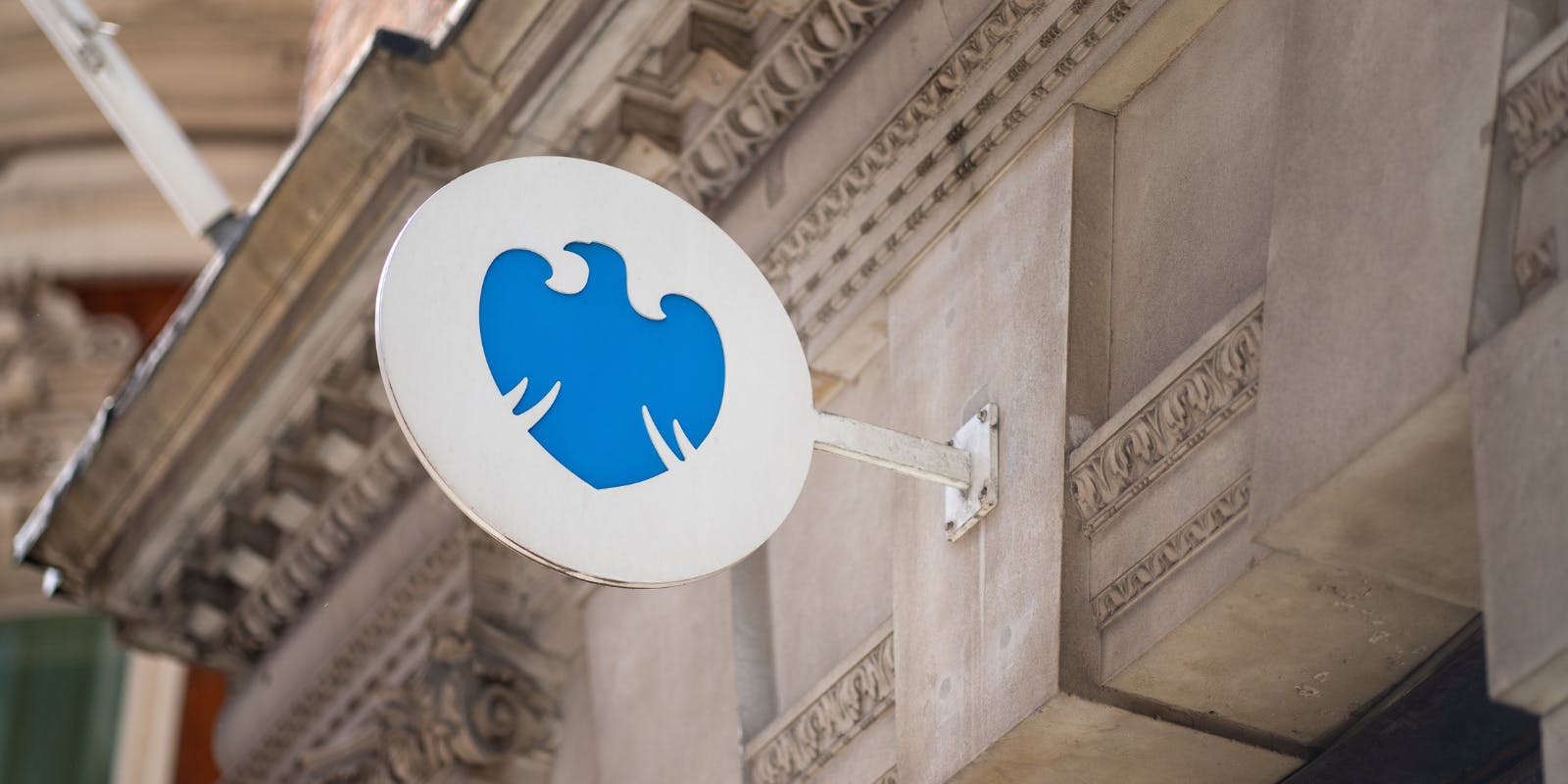What is a Guarantor Mortgage and how do they work?
For first buyers struggling to get the mortgage they need, a guarantor mortgage could be the answer. Find out what they are, and how they work in our guide.
In this guide
- What is a guarantor on a mortgage?
- How does a guarantor mortgage work?
- What types of guarantor mortgages are there?
- How would a guarantor help me get a mortgage?
- Is it hard to get a guarantor mortgage?
- How much deposit do you need for a guarantor mortgage?
- How much can I borrow with a guarantor?
- Can a guarantor loan be declined?
- Are guarantor mortgages a good idea?
- Can I have a guarantor on my mortgage?
What is a guarantor mortgage and how do they work?
You will have heard of a first-time buyer mortgage, perhaps also a remortgage, but what about a guarantor mortgage?
A guarantor mortgage is a handy but little-known type of home loan that enlists the help of family or friends. They agree to support your mortgage application in one way or another, bringing you several steps closer to your homeownership dreams. And let’s face it, if you’re a first time buyer right now you need all the help you can get.
For home buyers who are struggling to raise a large enough house deposit, or whose income simply isn’t enough to get the mortgage they need, asking a family member or friend to act as a guarantor could be the answer.
What is a guarantor on a mortgage?
A guarantor on a mortgage loan is someone who is willing to help you get on the property ladder. Traditionally, a mortgage guarantor would be a family member or friend, who acts as a 'back-up' in case the home buyer cannot make the mortgage payments. However, they are not named on the deeds of the property, so won’t own a share of the property. Today, there are lots of different types of guarantor mortgages which allow friends and family to help you get on the property ladder.
How does a guarantor mortgage work?
Technically, a guarantor mortgage works much like a normal mortgage, as long as you make each of your repayments each month. The key difference is how the loan is secured. With a standard mortgage, the loan is secured against the home you're buying. With a guarantor mortgage, the guarantor will be asked to offer up some collateral to the mortgage lender as security for the mortgage. This is usually either savings, income or a chunk of their own equity that they have built up in their home to cover your debt if the need arises. There is a generally a time limit for the bank to hold these as security. As long as you pay your mortgage on time, the guarantor’s security is released when the agreement expires. But if you don't make your mortgage payments, your mortgage guarantor will be legally responsible for ensuring that the repayments are made, which could mean their savings, equity or earnings will be used to make up the shortfall.
Savings as collateral
If the mortgage is secured against savings, then the mortgage guarantor deposits money (typically between 5-20% of the house value) into a savings account that is held by the lender. They cannot access the money until the mortgage is paid off.
These types of mortgages are usually called family springboard mortgages, or Savings as Security mortgages.
Property as collateral
If the mortgage is secured against the guarantor’s property, then the guarantor agrees that their property is used as collateral if the buyer is unable to pay. Your guarantor will only be asked to repay your debt if your home is repossessed. Were this to happen, the bank puts the house on the market to sell and the money from the sale goes towards clearing your mortgage. If there's a shortfall, that's when the guarantor will be asked to pay up, either using the savings which was used as collateral or equity held in the guarantor's property.
This may sound dramatic, but in truth banks try all sorts of measures to help you with your repayments before it gets that far. Remember, it always pays to ask for help instead of suffering in silence. You can read more about the benefits and risks of guarantor mortgages in our guide here.
There is also an alternative that still allows your loved one to use their property to help you purchase your first home. Through a Deposit Boost, your family member can use a small mortgage to unlock money from their home, which is then gifted to you to boost your house fund. With a larger house deposit you may be able to access lower mortgage interest rates, or afford a larger property. Because they use a separate mortgage to unlock money from their home, a Deposit Boost is technically not a guarantor mortgage because they won't be named on the mortgage and won't be liable for the repayments if you cannot pay. But it is a way for your family to support your home purchase.
Traditional guarantor mortgages aren't widely used any more. A much more popular option is an Income Boost, which works in a very similar way - read more about them below.

Kirsty White
Mortgage Lead
Income as security
A more modern version of a guarantor mortgage uses a loved one's income as security, instead of their savings or home equity. It works by adding some or all of a loved one's earnings to your mortgage application. With a larger household income, you can increase your borrowing power, helping you to borrow more. Your loved one will not be named as an owner, and will only need to contribute to the mortgage if you miss your monthly repayments.
See if you're eligible for this type of guarantor mortgage by creating a free plan today.
What types of guarantor mortgages are there?
Today, there are lots of different types of guarantor mortgages. They range from a loved one signing an agreement saying they will step in to repay the balance of your debt if you default, to the next generation of guarantor mortgages, where existing property or income is used to increase the buyer's affordability.
Below, we run over the some of the types available from our panel of over 100 lenders:
1. Family springboard mortgages
First, let's look at family springboard mortgages. These work by a family member or friend depositing 10% of the home purchase price into a special savings account for a number of years. Buyers can normally choose to put down a deposit of up to 9.9% as well, or can avoid a deposit altogether. After the set time period, provided you've kept on track with your payments, the lender will return your mortgage guarantor's savings along with any interest that has accumulated in that time.
The drawback here is that your guarantor can't access their hard-earned savings for a considerable amount of time. This could leave them in a sticky situation if unexpected expenses arise, or they might miss out on an exciting opportunity because their money is tied up.
It also makes the big assumption that your mortgage guarantor has 10% of your purchase price available in cash. The average house in the UK now costs £267,100, so for families wanting to use this type of guarantor loan, that would mean putting £26,700 or more into a savings account. This is why springboard mortgages aren't for everyone, but are still an option worth considering.
You can read more on how family springboard mortgages work in our guide here.
2. Joint borrower sole proprietor mortgages
Another solution is to use a new type of guarantor mortgage loan agreement called a joint borrower sole proprietor mortgage. That’s a bit of a mouthful, so at Tembo we call this Income Boost. A joint borrower sole proprietor mortgage allows your parents or helpers to join you on the mortgage to boost the amount of money the bank will lend you. They agree to be jointly responsible for the payments (that’s the joint borrower bit) without being listed on the property deeds. That makes you the sole proprietor and they avoid the hefty stamp duty bill when they move home.
There are other deals where parents can join their kids on the actual mortgage itself, but the big stinger here is that your Mum and Dad will be named on the property deeds with you. This means that they have inadvertently become second homeowners. The next time they move house and buy a new one, the tax man will charge them more in stamp duty.
Joint Borrower Sole Proprietor mortgages aren't offered by all lenders and building societies. Create a plan with us today to find out if you could be eligible for this type of gurantor loan and how much it could help you boost your borrowing potential.
How an Income Boost helped my daughter get her first home
3. Gifted Deposit Boost
One of the stumbling blocks of a lot of first time buyers is saving a large enough house deposit. In fact, in our First Time Buyers Report, we found that the average first time buyer needs a £60,000 deposit to buy a property in the UK, even more in London. With a rising cost of living, it's often impossible for a lot of renters to save anywhere close to this figure. This is where our Deposit Boost comes in, an accessible alternative to 100% mortgages.
A Deposit Boost is essentially a gifted deposit, where a family member or friend who owns a property releases money from their home to gift to you as a deposit, or to add to your current pot. It works by setting up two mortgages; a first-time buyer mortgage for you and a mortgage for your helper (we like to call them homeboosters) to release money from their property to gift to you.
The money raised by the homebooster’s mortgage is the cash you will use for your house deposit. The balance of the homebooster loan does not have to be repaid until they sell their property and they can choose from plenty of flexible deals from a two-year fix to a lifetime mortgage. With an enhanced deposit, you can get a mortgage with lower interest rates, making your monthly payments more affordable.
If you have family or friends who own their own home and want to help you own yours, a Deposit Boost is worth considering. And you might be surprised how much people do want to help, if you ask. Research shows that three quarters of parents whose income had taken a hit during the pandemic said they were still determined to support their kids’ property buying dream. If you are apprehensive about talking to your family about money or getting an inheritance early, read our guide here.
Read more: What are mortgage interest rates and what is a good interest rate?
What a gifted Deposit Boost is and how it works?
How would a guarantor help me get a mortgage?
Saving for your first house deposit is tough. With house prices at record highs and savings rates at an all-time low, the cards are stacked against young home buyers. Having a guarantor on your mortgage through the support of your family or friends can help you buy with a much smaller deposit saved, or even none at all. A mortgage guarantor can also help you if you're not able to borrow enough money to buy the home you want because of your salary, or are finding it hard to buy a house by yourself. New buyers aren't the only ones who can benefit from the help of a mortgage guarantor, too. If you're struggling to remortgage, or move up the property ladder because you've outgrown your used-to-be cosy but now cramped apartment, you can still benefit from the help of a guarantor.
You can read more about the benefits and risks of boost and guarantor mortgages in our guide here.
Is it hard to get a guarantor mortgage?
Guarantors on mortgages tend to be people in more stable financial situations than the home buyer, like parents or grandparents. Having a guarantor on your home loan can make you a less risky borrower in the eyes of the borrower because your guarantor offers some form of security for the mortgage, or helps you put down a larger down payments. This can make it more likely that lenders will approve a home loan if there is a guarantor on the mortgage. However, you and your guarantor will need to pass affordability checks before you can get a guarantor loan, including a credit check.
How much deposit do you need for a guarantor mortgage?
Some guarantor mortgages do not require you to put down any deposit because the guarantor offers their own savings as security for the home loan. With other guarantor loan schemes, you may only be required to put down 5% of the total property price as a deposit, while others may require 10% or more. It entirely depends on what guarantor mortgage you go for.
How much can I borrow with a guarantor?
Having a mortgage guarantor will only impact how much you can borrow if their income is added to yours. How much you can borrow for a mortgage is based on your total household income. Typically, lenders will let you borrow between 4-4.5 times your household income for a home loan, although some people can borrow more than this. If you add a family member's income to yours as a guarantor on the mortgage, this will increase your household income, helping you to borrow more for a mortgage.
Can a guarantor loan be declined?
Yes, it is possible that a guarantor loan will be declined. Both the home buyer and their mortgage guarantor will go through credit rating, affordability and eligibility checks by the lender before the loan is approved. If either you and your guarantor do not meet the lender's criteria, then they will decline your guarantor loan application. It can be difficult to know whether you will meet these requirements, as different lenders and mortgage products have different criteria. This is why working with a mortgage broker who specialises in family support mortgages can be helpful, as they'll be able to find the right guarantor mortgage for you.
Tembo is an award-winning digital mortgage broker who specialises in affordability-boosting schemes including guarantor mortgages. We have already helped thousands discover how they could afford their dream home. To see what you could afford, create a free Tembo plan today.
Are guarantor mortgages a good idea?
Having a guarantor mortgage can be a great idea for those who are struggling to buy their first home alone, or are struggling to remortgage onto a new deal due to affordability. Having a guarantor on a mortgage can help you borrow more for a home loan, or increase your chances of being accepted if you have been rejected previously due to a small deposit, poor credit history or inconsistent earnings.
Can I have a guarantor on my mortgage?
The best way to find out if you can have a guarantor on your mortgage is to talk with a mortgage broker who specialises in family support schemes and guarantor home loans.
With a panel of over 100 mortgage lenders, our team of award-winning mortgage brokers can advise you on whether a guarantor mortgage is the best option for you and your family, as well as walk you through the other lending schemes out there. To get started, create a plan on our homebuyer platform today to get a clear view of what your maximum buying budget could be and the options available.
Find out what you could afford with a guarantor's help today for free!
Create a free Tembo plan to see how a guarantor's help could boost your buying budget. Then, book in a free call with one of our guarantor mortgage experts to talk through your options.



